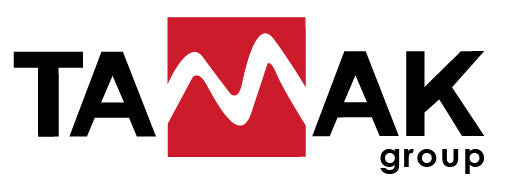Mauritius
Mauritius is a tropical island nation in the Indian Ocean, known for its stunning beaches, vibrant culture, and rich biodiversity. Its economy thrives on tourism, financial services, and agriculture, with a stable democracy ensuring political and social stability. The island is famous for its mix of cultures, scenic landscapes, and luxury resorts, making it a top destination for travelers.
Geography and Climate
• Location: Island nation in the Indian Ocean, about 2,000 kilometers off the southeast coast of Africa.
• Climate: Tropical, with warm temperatures year-round. Summer (25°C to 30°C) from November to April; winter (20°C to 25°C) from May to October.
• 150 Kilometers of Sandy Beaches: The island has approximately 150 kilometers of pristine sandy beaches, popular for tourism and water activities.
• Climate: Tropical, with warm temperatures year-round. Summer (25°C to 30°C) from November to April; winter (20°C to 25°C) from May to October.
• 150 Kilometers of Sandy Beaches: The island has approximately 150 kilometers of pristine sandy beaches, popular for tourism and water activities.
Economy and Business Environment
• GDP per Capita: Over USD 14,000 as of December 2023.
• Growth Rate: Economic growth exceeded 7% in 2023, driven by sectors like tourism, ICT, financial services, and manufacturing.
• Ease of Doing Business: Ranked among the top African countries with a pro-business environment, simplified company setup, low taxes, and strong investor protections.
• Financial Services: A well-developed financial hub for banking and global business services in the region.
• Blue Economy: Focusing on the sustainable use of ocean resources, fisheries, and aquaculture.
• ICT and Innovation: Developing its ICT sector with aspirations to become a smart island and a hub for innovation in the region.
• Tourism: A key economic driver with over 1 million visitors annually, attracted by luxury resorts, eco-tourism, golf courses, and cultural festivals.
• Growth Rate: Economic growth exceeded 7% in 2023, driven by sectors like tourism, ICT, financial services, and manufacturing.
• Ease of Doing Business: Ranked among the top African countries with a pro-business environment, simplified company setup, low taxes, and strong investor protections.
• Financial Services: A well-developed financial hub for banking and global business services in the region.
• Blue Economy: Focusing on the sustainable use of ocean resources, fisheries, and aquaculture.
• ICT and Innovation: Developing its ICT sector with aspirations to become a smart island and a hub for innovation in the region.
• Tourism: A key economic driver with over 1 million visitors annually, attracted by luxury resorts, eco-tourism, golf courses, and cultural festivals.
Infrastructure and Accessibility
• Accessibility: Well-connected by air, with direct flights to Europe, Africa, and Asia. Sir Seewoosagur Ramgoolam International Airport is the main airport.
• Infrastructure: Modern road network with motorways connecting major cities and towns.
• Metro Express: An eco-friendly light rail system linking the capital, Port Louis, with nearby regions.
• Number of Vehicles: Over 600,000 registered vehicles, with ongoing infrastructure improvements.
• Infrastructure: Modern road network with motorways connecting major cities and towns.
• Metro Express: An eco-friendly light rail system linking the capital, Port Louis, with nearby regions.
• Number of Vehicles: Over 600,000 registered vehicles, with ongoing infrastructure improvements.
Culture and Society
• Population: Approximately 1.3 million, with a multicultural mix including Indo-Mauritians, Creoles, Sino-Mauritians, and Franco-Mauritians.
• Languages: Official language is English, with French and Creole widely spoken. Many also speak Hindi, Bhojpuri, and Chinese.
• Cultural Heritage: A blend of cultures with festivals from Hinduism, Christianity, Islam, and Buddhism celebrated nationwide.
• Languages: Official language is English, with French and Creole widely spoken. Many also speak Hindi, Bhojpuri, and Chinese.
• Cultural Heritage: A blend of cultures with festivals from Hinduism, Christianity, Islam, and Buddhism celebrated nationwide.
Governance and Stability
• Democracy: A stable parliamentary democracy with regular elections, strong rule of law, and high civil liberties, making Mauritius one of Africa’s most stable nations.
• Legal System: A blend of British common law and French civil law, providing strong protections for businesses and individuals.
• Legal System: A blend of British common law and French civil law, providing strong protections for businesses and individuals.
Social Benefits and Welfare
• Welfare and Social Benefits: Free education, healthcare, and a robust pension system contribute to high literacy rates and social mobility.
• Education: Free education from primary to tertiary levels, contributing to a well-educated workforce.
• Education: Free education from primary to tertiary levels, contributing to a well-educated workforce.
Tourism and Hospitality
• 5-Star Hotels: World-class luxury hotels offering premium accommodations, wellness experiences, and fine dining.
• Best Destination by Forbes Magazine: Forbes magazine ranked Mauritius as one of the world’s best destinations for its natural beauty, cultural richness, and luxury resorts.
• Best Destination by Forbes Magazine: Forbes magazine ranked Mauritius as one of the world’s best destinations for its natural beauty, cultural richness, and luxury resorts.
Emerging Sectors
• Health Tourism: Mauritius is emerging as a destination for medical tourism, offering high-quality and affordable healthcare services.
• Renewable Energy: The country is committed to increasing the use of renewable energy, especially through solar and wind power, as part of its sustainable development strategy.
• Renewable Energy: The country is committed to increasing the use of renewable energy, especially through solar and wind power, as part of its sustainable development strategy.
YesMauritius.com
YesMauritius.com welcomes you to discover why Mauritius is the best island in the world for business, tourism, and lifestyle.
